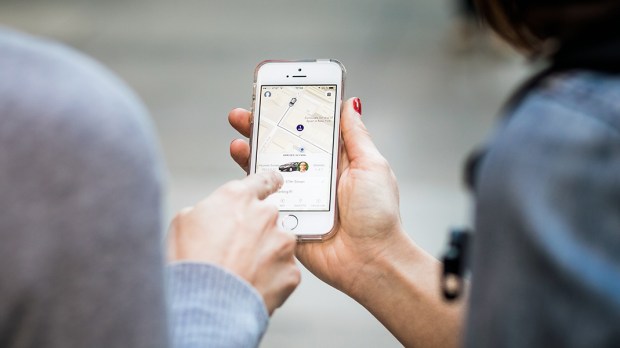Lenten Campaign 2025
This content is free of charge, as are all our articles.
Support us with a donation that is tax-deductible and enable us to continue to reach millions of readers.
I don’t know if y’all have noticed, but the way we travel, work, and live is changing in pretty profound ways. If you haven’t noticed, don’t worry — it wasn’t until my job began taking me to different cities (well, mainly just Austin) that I realized it myself: grown-ups have re-learned how to share.
It sounds silly, but it’s true. Instead of driving separate cars on an evening out, we split an Uber. Instead of paying for separate hotel rooms with the points we’ve racked up on airfare, we Airbnb for a fraction of the cost. We sell our barely worn clothes, shoes, and possessions to our neighbors at steep discounts on local buy-sell-trade walls. We use neighborhood apps like Next Door to share tips and information or ask for a cup of sugar. In fact, sharing is revolutionizing our society so dramatically that The New York Times recently featured an article about the massive impact it’s having on everything from the hotel industry to the economy.
“The sharing economy puts a value on making underutilized assets available to a community,” says Alex Stephany, author of “The Business of Sharing” and the chief executive of Beam, a sharing platform that uses crowdfunding to provide vocational training for homeless people. “It gives us more from less …” With more people moving to cities, embracing minimalism and connecting with like-minded people via smartphone apps, the sharing economy is affecting almost every aspect of our lives — and improving our society in surprising ways. Like our first-grade teachers taught us: Sharing is good.
Sure, communal sharing isn’t exactly a revolutionary new development in human society. It’s actually the backbone of society, the very thing that allowed us to form communities and civilizations. But during the economic and technological boom of the ’80s and ’90s, more money and more tech combined to make sharing become practically obsolete. We didn’t need to borrow a cup of sugar from a neighbor because we had the means and the transportation to go get our own. Sharing became something that was nearly frowned upon, and we kind of just … forgot how to do it.
In that respect, the recession of the new millennium was almost a boon for society. Our resources shrank as tech kept expanding and growing, and soon entrepreneurs realized that there was a brand new market they could tap into, one that combined basic economic need with growing awareness of environmental sustainability. So now, if you need a ride, a place to stay, or a new dress, there’s an app for that.
Honestly, I love this new frontier. I’ve met so many interesting Uber and Lyft drivers that are capitalizing on the ability to make a little extra money while also meeting new people. I’ve spent weekends in Austin with my local trainer team at a fraction of what I would have paid for a hotel room — and sharing a house with people is an amazing way to foster connections and build better team dynamics. And I’ve gotten to experience the wonder of train travel (something I learned to love during my semester abroad in college) combined with Wi-Fi, allowing me to work and relax during a trip and sparing me the misery of fighting construction and traffic on I-35.
I know we tend to be leery of new frontiers in technology, but this is one we shouldn’t fear. Sharing resources is a fundamental Christian virtue, and the fact that younger generations are embracing technology that offers new, more efficient and effective ways to practice that virtue is something that gives me a great deal of hope for the future.
Read more:
Can there be spiritual benefits to social networking?

